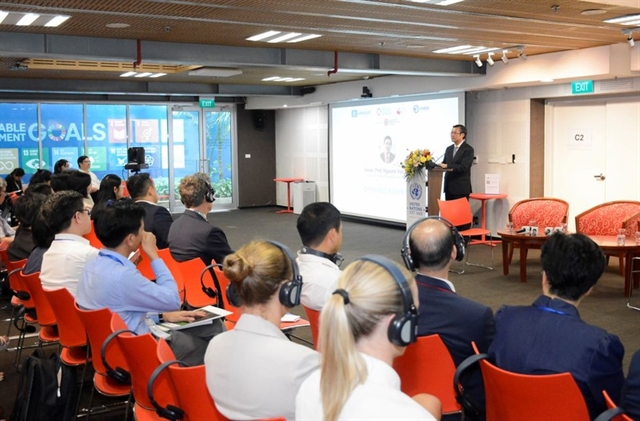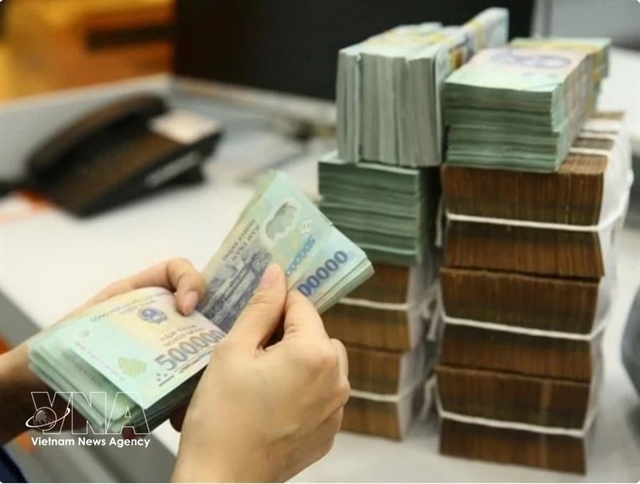 Society
Society

 |
| A Vietnamese delegation to the event. VNA/VNS Photo |
Paris – Việt Nam has been elected as Vice-Chair of the General Assembly of the State Parties to the 2003 Convention for the Safeguarding of the Intangible Cultural Heritage, bringing the total number of key UNESCO mechanisms in which Việt Nam has joined to six.
This appointment, announced at the 10th session of the General Assembly in Paris on Tuesday, underscored Việt Nam's rising international profile and the international community's trust in its ability to contribute to global institutions, said Vietnamese Deputy Minister of Foreign Affairs and Chairman of the Vietnam National Commission for UNESCO Hà Kim Ngọc, who led the Vietnamese delegation to the session.
He credited Việt Nam's success to the Party and State's sound foreign policy on diversification and multilateralisation of external ties, comprehensive global integration and cultural diplomacy initiatives, especially the Cultural Diplomacy Strategy to 2030.
Ngọc said as Vice-Chair, Việt Nam will play a key role in shaping UNESCO's cultural agenda and driving progress on the 2003 Convention. He also emphasised Việt Nam's commitment to leveraging UNESCO's programmes, plans and initiatives to support national development, heritage preservation, and ensure the highest national interests in global cultural cooperation.
Việt Nam boasts a rich tapestry of intangible cultural heritage, with 15 elements inscribed on the UNESCO Intangible Cultural Heritage List and 550 recognised nationally. The country continually fine-tunes national policies and laws, most recently the National Target Programme on Cultural Development to 2045 and the amended Cultural Heritage Law, Ngọc affirmed.
Addressing the opening of the General Assembly's 10th session, the Deputy FM called for continued international cooperation and effective implementation of the Convention. He stressed the importance of knowledge sharing and capacity building for developing, African and small island developing states, focusing on empowering communities, women and youth in heritage preservation efforts.
The General Assembly is the sovereign of the 2003 convention, which serves as a platform for 183 member states to collaborate on safeguarding the world's living cultural traditions. Vietnam officially joined the 2003 Convention on September 5, 2005, becoming one of the first 30 countries worldwide to adopt this important Convention. Việt Nam has been elected twice to the Inter-Governmental Committee for the Safeguarding of Intangible Cultural Heritage.
Việt Nam is in the process of completing and submitting several dossiers for UNESCO recognition, including the Yên Tử - Vĩnh Nghiêm - Côn Sơn, Kiếp Bạc relic and scenic complex; the Óc Eo-Ba Thê archaeological site, Con Moong Cave, the Bà Chúa Xứ Tem Festival at Sam Mountain, Đông Hồ folk painting art, cheo stage art, Mo Mường, Lạng Sơn Geopark, and notably a project to preserve and promote the values of the central sector of the Thăng Long Imperial Citadel in Hà Nội. VNS




